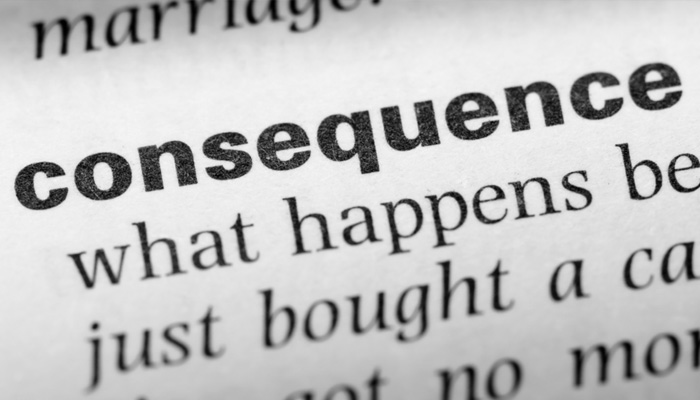At some point, you’ll screw up in your professional life. While it won’t likely be an epic screwup that’ll land your picture on the 10 o’clock news, there’s a very real likelihood that you’ll let down people who matter to you: clients, colleagues, and others who depend on your judgement and professionalism on a daily basis.

The steps you take immediately after a screwup will determine how much impact the screwup will have on your life – personally, professionally or civically. In this article, I’ll share some of the wisdom I’ve gained through the years by working with high- and low-profile real estate professionals who have committed some of the biggest blunders imaginable.
A note before we get too far: This article focuses mostly on how to recover from what most people might consider serious mistakes and/or screwups, not minor things that can easily be corrected with a simple apology or a gift card. However, regardless of the nature of the screwup, an apology is almost always in order.
Following are a few examples of screwups real estate pros I know have gotten wrapped up in. The names have been changed to protect the guilty (although each has given his or her blessing with what I’m reporting here):
Due to missing a deadline, “John Smith” cost a client a substantial amount of money because of some very specific contingencies contained in a real estate agreement. The client posted a very public, negative online review that damaged his reputation as well as the reputation of the firm with which he was affiliated.
“Mark Johnson” engaged in a social media war on his Facebook page with someone who took issue with something he wrote. Tempers flared and before he knew it, Mark threw some pretty powerful bombs that made him look petty and cruel.
“Denise Johnson” was unhappy with the real estate agency she worked with. At a Christmas party, she got into a loud argument with her firm’s Managing Broker in front of many of her coworkers and said some things she shouldn’t have that caused a great deal of division in her office.

Regardless of the kind of screwup, there is a path forward. In this article, I’m going to share some advice that can help you to minimize just about any screwup in a way that will show you a path forward.
Assess Your Screwup
The first step in recovering from any kind of a screwup is assessing the damage. Does your screwup involve hurt feelings which are confined to your office or is your screwup more public? Does your screwup have the potential to result in legal or administrative/regulatory action against you or your firm?
Recovering from a screwup has to include knowing what the damage (or the potential for damage) can include. Obviously, some mistakes or screwups are more serious than others. Moving beyond the screwup and setting the stage for recovery often involves many of the same steps or following a simple blueprint.

Own Your Mistake
Whatever you do, it’s vital that you own your screwup. Mistakes really do happen on a regular basis. In the heat of the moment, you’ll be tempted to pretend your screwup didn’t happen or even deny it when asked. Don’t – you’ll only make it worse.
This doesn’t necessarily mean your response needs to be public. For instance, some screwups are relatively minor. For instance, you’ve made a minor mistake that’s been blown out of proportion by a client.
Own your screwup.
Own your screwup. You definitely want to involve your Broker, particularly if there is the potential for regulatory or legal action or it involves the reputation of your firm. You should also involve your client, if it has an impact on their transaction.
Think About the Impact of Your Mistake
It is undeniable that mistakes and other screwups have very real consequences on others. It might be financial, it could be hurt feelings or shattered professional relationships. Regardless, you should take some time to think about the impact of your screwup or mistake on those directly impacted.
There’s a practical reason for thinking carefully about the impact of your mistake: If you fully understand the impact, it will more fully inform your response so you can try to make things right.

Make it Right with the People Who Really Matter
After talking with your broker, you’ll want to take remedial action to set things right quickly. The form making things right takes will depend on the nature of your mistake. For instance, if your screwup cost your client money, you owe it to them to make it right even if it means writing a check to compensate them for your mistake.
If your mistake involves a more public screwup, for instance, getting into an online argument where you write some things that offend a lot of people, you may need to write a post on your blog or social media account to apologize for your actions. I would not leap too quickly to issue a public mea culpa except in the most extreme cases, though, because of the nature of social media. Some people live for online drama. Often, the best course of action is to simply delete the offending material and move forward with your life. If the issue doesn’t go away on its own, you might want to consider a brief, heartfelt apology.
If the issue doesn’t go away on its own, you might want to consider a brief, heartfelt apology.
If you say something within your office (for instance, you get a case of “loose lips” and disparage your company or some of the people in it at a party) you should do your best to apologize to everyone involved. You’ll want to speak with your Broker to determine what he or she feels is most appropriate.
Accept Consequences Without Complaint
Sometimes, despite your best efforts at making amends for a screwup, there are consequences that you may or may not agree with. For instance, maybe your Broker isn’t as understanding of your mistake as you would like, and he or she feels the most appropriate path forward is for you to part ways. If this is the case, accept the consequences of your actions without complaint.

At this point, it doesn’t really matter if you agree with the proposed remedy. When your Broker makes the decision that your mistake is great enough that the only acceptable solution is to show you the door, the best thing you can do is to go gracefully and without complaint. Doing otherwise will most likely be fruitless and could potentially make a difficult situation even harder.
Learn from Your Mistakes
Every moment in your professional career gives you the opportunity to learn from your mistakes. Whatever you do, don’t repeat mistakes or screwups. Learn from them.
One of the best pieces of advice I’ve ever been given is to aim to have a professional life filled with lots of one-time mistakes – not because making oodles and gobs of mistakes is necessarily a good thing – but because making mistakes no more than once shows a propensity to learn from mistakes. Not too many people will hold it against you if you can learn from your mistakes.
Whatever you do, don’t repeat mistakes or screwups. Learn from them.
Don’t Live in the Past
It can be incredibly easy to get so wrapped up in past mistakes that you can’t live in the present. Once you’ve addressed a screwup and have made amends (and suffered the consequences of your actions) it’s time to let the past stay where it belongs.
Even if your mistakes are significant, it is vital that you move on from your mistakes and not live in the past. Otherwise, you will be so hamstrung by what happened in the past that one of two things will happen:
- You’ll fall into a rut where you increase the likelihood of making the same mistake again, or,
- You spend all of your time beating yourself up for a silly (or even stupid) mistake that will never be repeated.
Either way, focusing too much attention on the past will make you a timid, less effective real estate professional. If for some reason someone dredges up one or more mistakes from your past, be prepared to respond appropriately.

For instance, if one of your real estate clients points to a negative review about you that is accurate, don’t deny it.
Own your past mistake and explain to your client how you have grown since you made that particular mistake, and how/why it will not happen again because of what you learned from the experience.
Not all clients will be satisfied with your explanation, but most will respect you for being able to explain it instead of trying to hide from past mistakes.
Help Others Avoid the Same Mistakes You Made
Finally, one of the best ways to prove once and for all that you’ve learned from your mistakes, even egregious ones, is by helping colleagues to avoid similar situations. Most people will appreciate your candor and advice, especially if it can help them to avoid making the same mistakes that you did.
To err is human. You’ll undoubtedly make a number of mistakes in your real estate career. How you respond to these mistakes and other setbacks will define what others think of you and what kind of career you ultimately have.
 Ken Speegle is Realty ToolKit’s resident real estate industry expert. Every week he writes insightful, in-depth articles about topics related to real estate marketing, each designed to help make you a better, more profitable real estate professional. Ken is the founder of therealestatewriter.com and has been a real estate copywriter since 1994.
Ken Speegle is Realty ToolKit’s resident real estate industry expert. Every week he writes insightful, in-depth articles about topics related to real estate marketing, each designed to help make you a better, more profitable real estate professional. Ken is the founder of therealestatewriter.com and has been a real estate copywriter since 1994.











